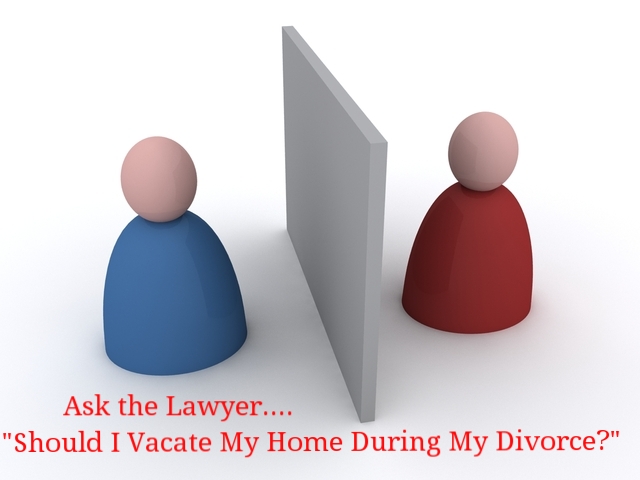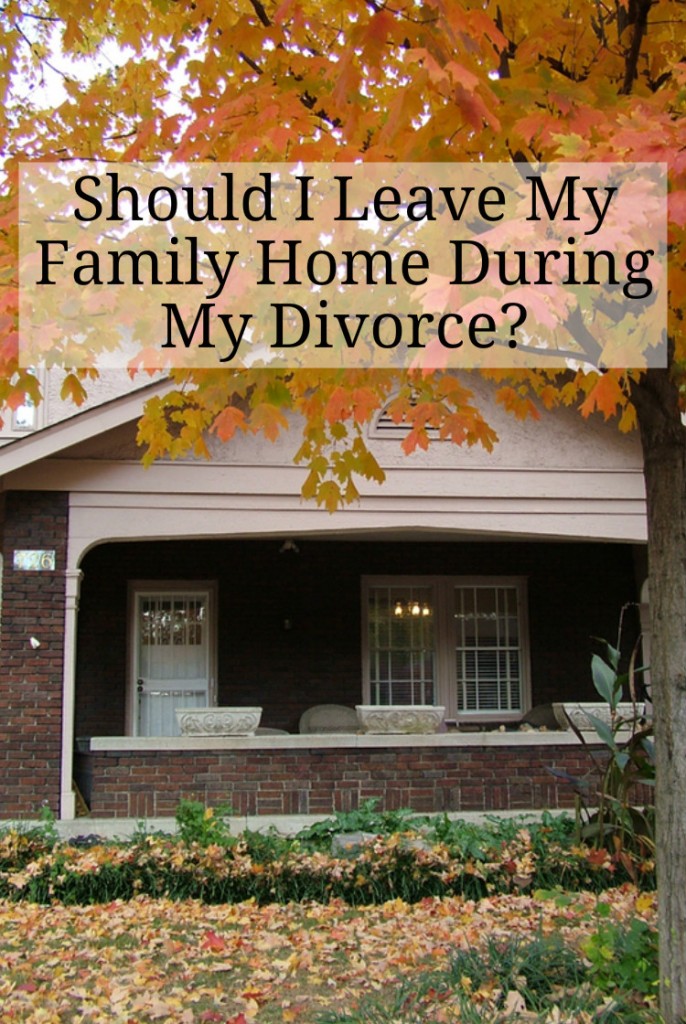A commonly asked question and a bit more complicated to answer than one may think. When deciding whether or not to vacate your family home during a divorce the answer frequently ‘is not’ cut and dry; and, will depend on your specific set of circumstances.
Bearing in mind divorce is often an emotional and difficult time for most persons involved. Seeking professional counsel is highly recommended to avoid making decisions based solely on emotional factors.
Ask the Lawyer: Corriveau Law Answers – “Should I Vacate My Home During My Divorce?”If You Stay
As uncomfortable as it may be to stay in the home while in the process of divorce, it does offer some advantages, both financially and concerning child custody. Many people choose not to vacate their home because by doing so their living expenses may increase, the amount of time spent with their children will decrease, and any chance at reconciliation may lessen.
Continuing to live in the home during a divorce certainly does financially make sense in most cases although; it is not always the best options. In the case of the higher-earning spouse that has chosen to move out he/she would be expected to continue contributing to current household expenses: such as mortgage and insurance until the divorce is final. These expenses would be in addition to paying for their new living accommodations. While, the spouse who has remained in the home during the separation process he/she may be required to give up money or property during the final division of assets.
Are there children involved? Changes in living arrangements can be quite difficult for children. Bearing in mind what is in the best interest of the child is extremely important: providing a consistent and stable environment is always preferred. If you’re in a custody battle it is best to seek professional counsel from a qualified family lawyer to avoid penalization for leaving/abandoning your children. This is one instance where leaving the family home without out taking the necessary precautions could have a direct effect on your future parent/ child relations.
Living together during the divorce process ultimately could do one of two things; lead to second thoughts, a regrouping of priorities, and ultimately reconciliation. Or the living arrangements may in fact expedite the process along as each party involved is striving for a quick, and peaceful resolution.
If You Go
All of that said; there certainly are some situations when a couple maybe better off not living together during the divorce process. Is the current living environment so toxic that it could have a negative impact on the children? Are you in fear for your and/or your child/ren’s safety, seek counsel immediately moving out certainly maybe advised but, careful to take all the necessary steps and precautions before doing so.
If you do choose to vacate your home, here are a few things to consider:
- Do you intend to take your children with you when you leave? You will need to obtain a court order for temporary legal custody to prevent kidnapping accusations.
- If you leave the home voluntarily, but do not take your children with you to the courts it may look as though you don’t care about having daily interaction with your children and/or their overall well-being {even if you in fact do so}. Or worse, you could be wrongfully accused of abandonment.
- If you are in an abusive environment obtaining a personal protection order maybe advised while seeking additional counsel on removal of the abusive.
Divorce is an emotional and difficult time to navigate through alone before making any decisions; it is advised you immediately seek counsel for guidance and education purposes. At Corriveau Law we are standing by to help guide you through the entire divorce process.
Should you vacate your family home during your divorce process – let us help you make the right decision for you and your family.
Disclosure: All cases are driven by the facts unique to each case as they apply to the law at the time, and the persuasive argument of an attorney. The information we provide is meant only as a broad overview, and not to be relied on without speaking with a legal representative.





